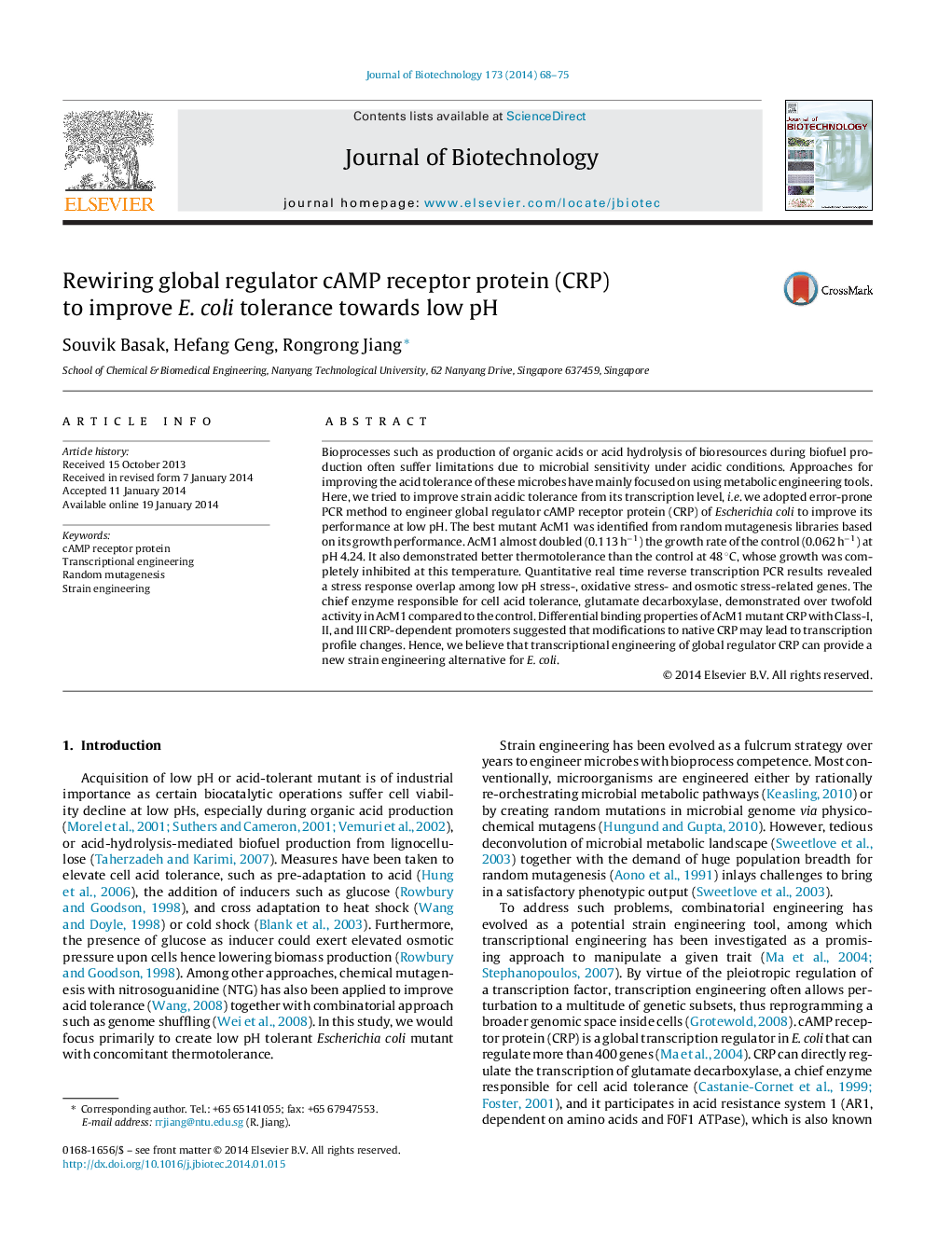| کد مقاله | کد نشریه | سال انتشار | مقاله انگلیسی | نسخه تمام متن |
|---|---|---|---|---|
| 6491622 | 43434 | 2014 | 8 صفحه PDF | دانلود رایگان |
عنوان انگلیسی مقاله ISI
Rewiring global regulator cAMP receptor protein (CRP) to improve E. coli tolerance towards low pH
دانلود مقاله + سفارش ترجمه
دانلود مقاله ISI انگلیسی
رایگان برای ایرانیان
کلمات کلیدی
موضوعات مرتبط
مهندسی و علوم پایه
مهندسی شیمی
بیو مهندسی (مهندسی زیستی)
پیش نمایش صفحه اول مقاله

چکیده انگلیسی
Bioprocesses such as production of organic acids or acid hydrolysis of bioresources during biofuel production often suffer limitations due to microbial sensitivity under acidic conditions. Approaches for improving the acid tolerance of these microbes have mainly focused on using metabolic engineering tools. Here, we tried to improve strain acidic tolerance from its transcription level, i.e. we adopted error-prone PCR method to engineer global regulator cAMP receptor protein (CRP) of Escherichia coli to improve its performance at low pH. The best mutant AcM1 was identified from random mutagenesis libraries based on its growth performance. AcM1 almost doubled (0.113 hâ1) the growth rate of the control (0.062 hâ1) at pH 4.24. It also demonstrated better thermotolerance than the control at 48 °C, whose growth was completely inhibited at this temperature. Quantitative real time reverse transcription PCR results revealed a stress response overlap among low pH stress-, oxidative stress- and osmotic stress-related genes. The chief enzyme responsible for cell acid tolerance, glutamate decarboxylase, demonstrated over twofold activity in AcM1 compared to the control. Differential binding properties of AcM1 mutant CRP with Class-I, II, and III CRP-dependent promoters suggested that modifications to native CRP may lead to transcription profile changes. Hence, we believe that transcriptional engineering of global regulator CRP can provide a new strain engineering alternative for E. coli.
ناشر
Database: Elsevier - ScienceDirect (ساینس دایرکت)
Journal: Journal of Biotechnology - Volume 173, 10 March 2014, Pages 68-75
Journal: Journal of Biotechnology - Volume 173, 10 March 2014, Pages 68-75
نویسندگان
Souvik Basak, Hefang Geng, Rongrong Jiang,